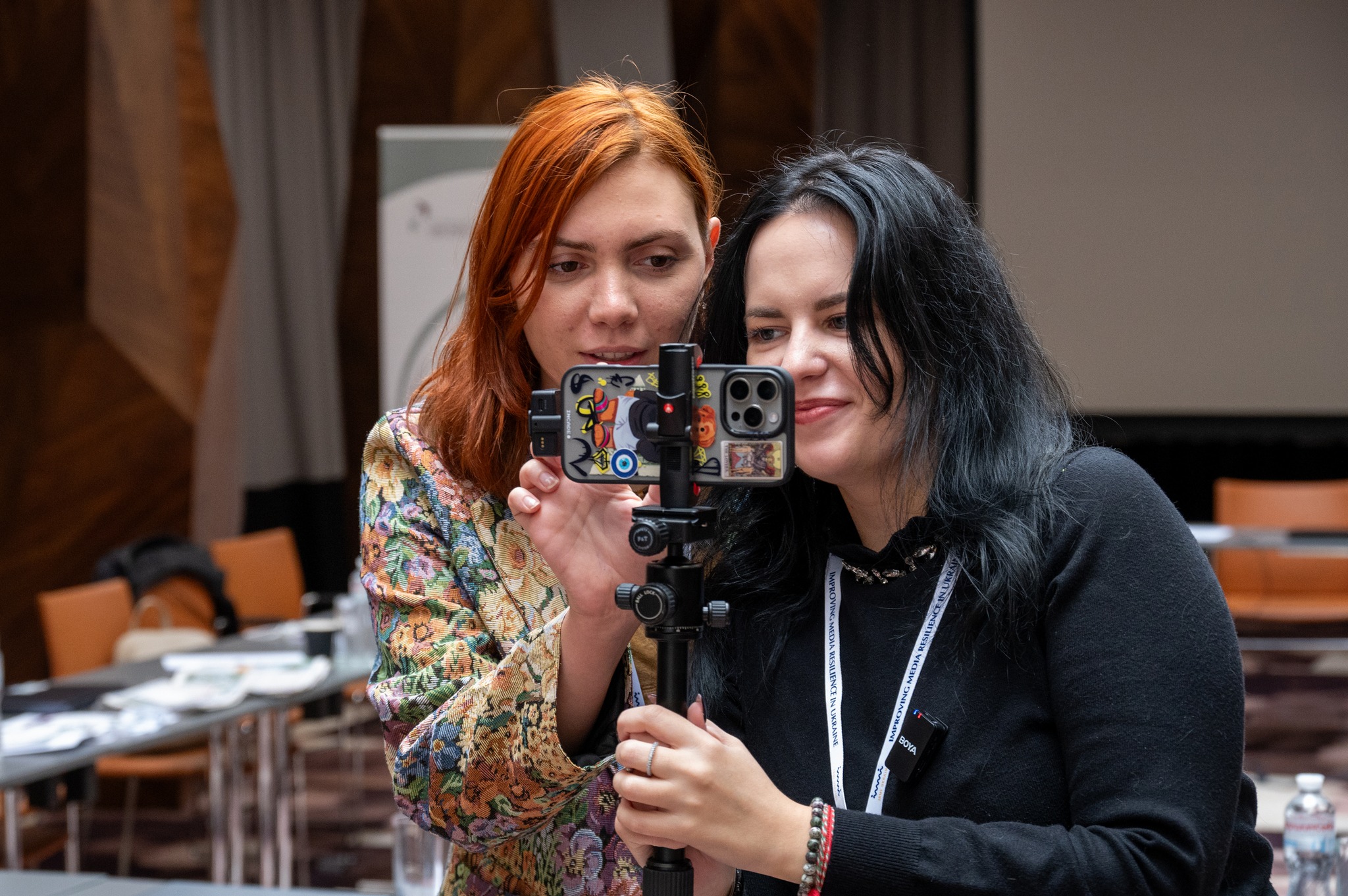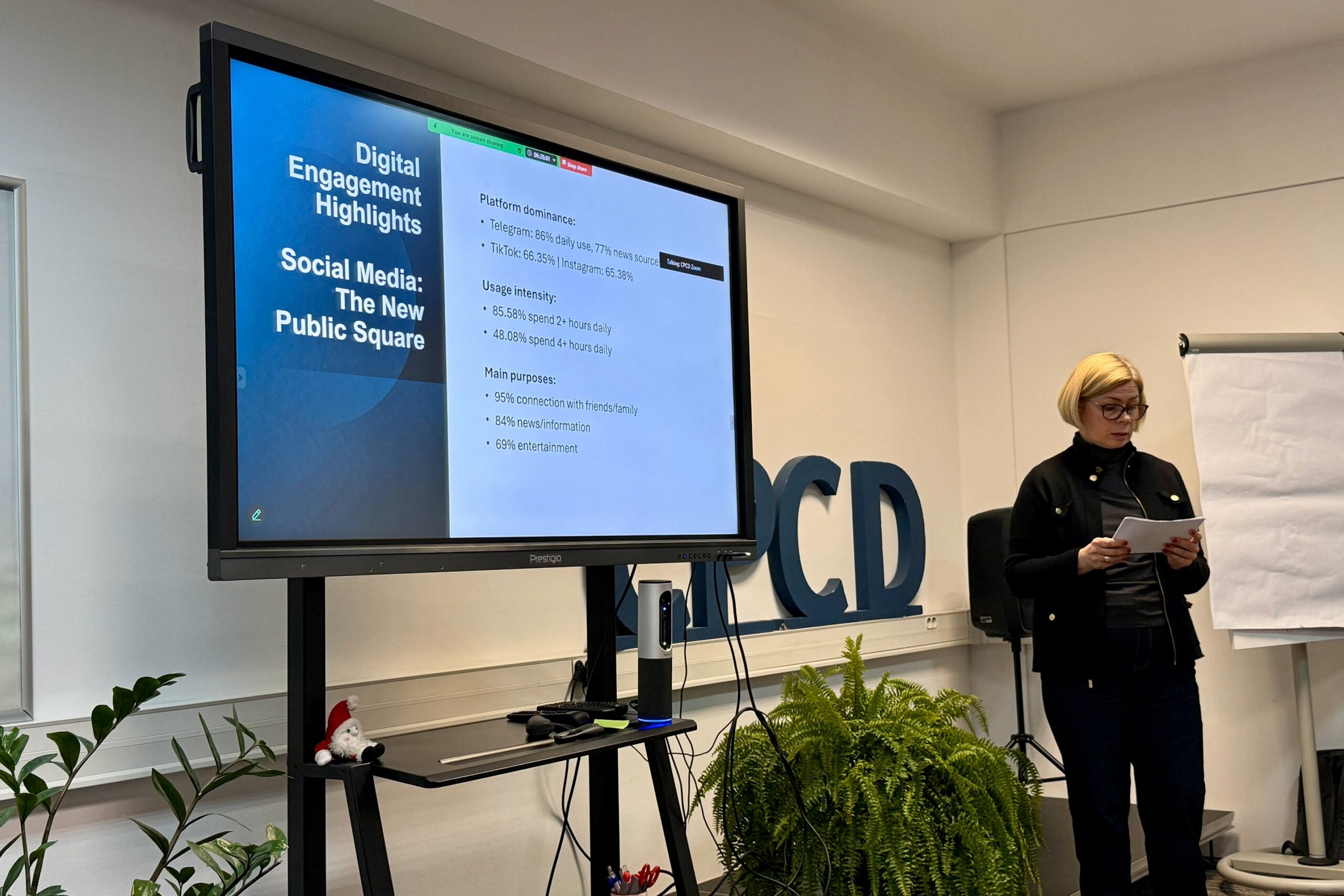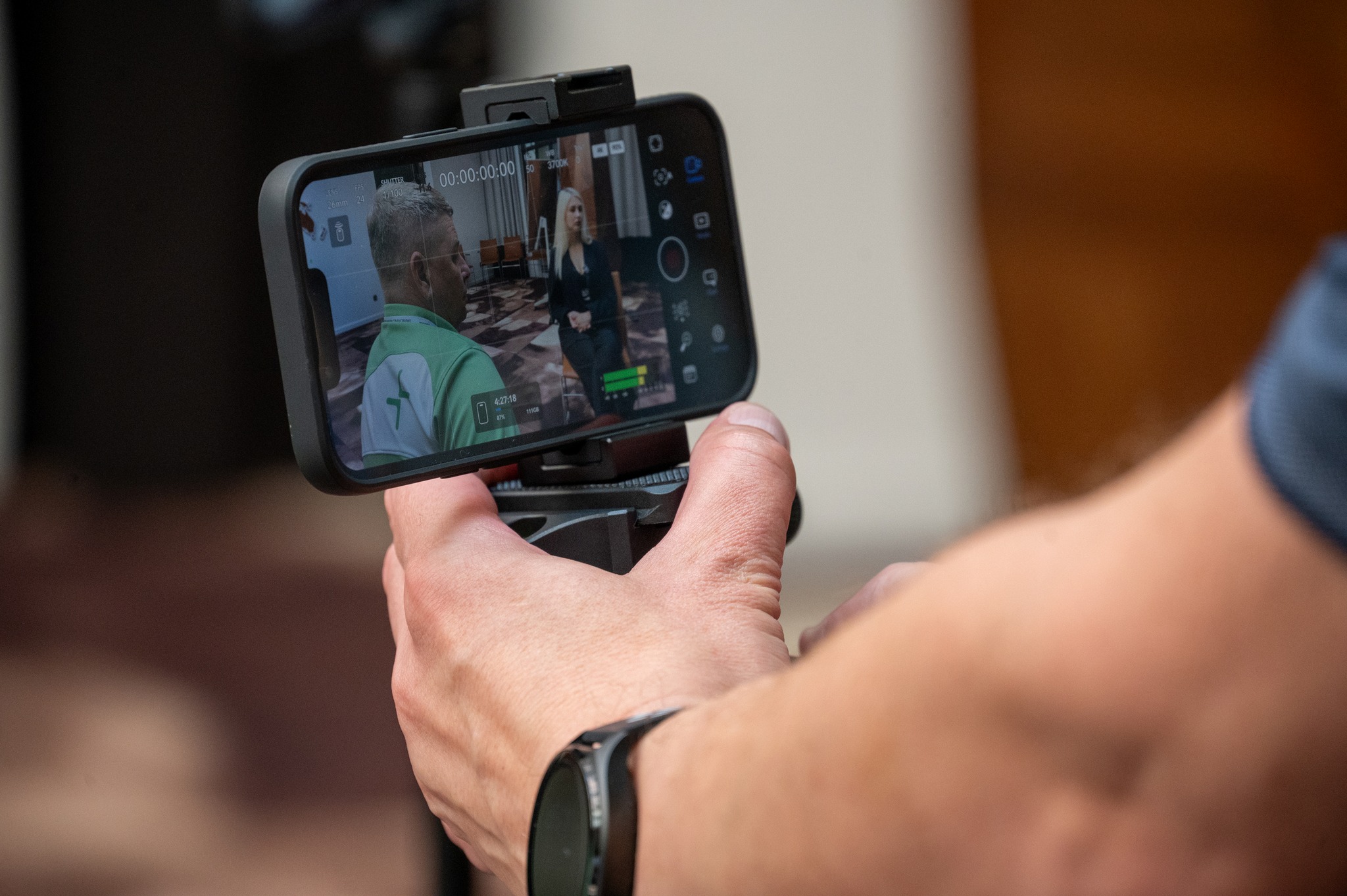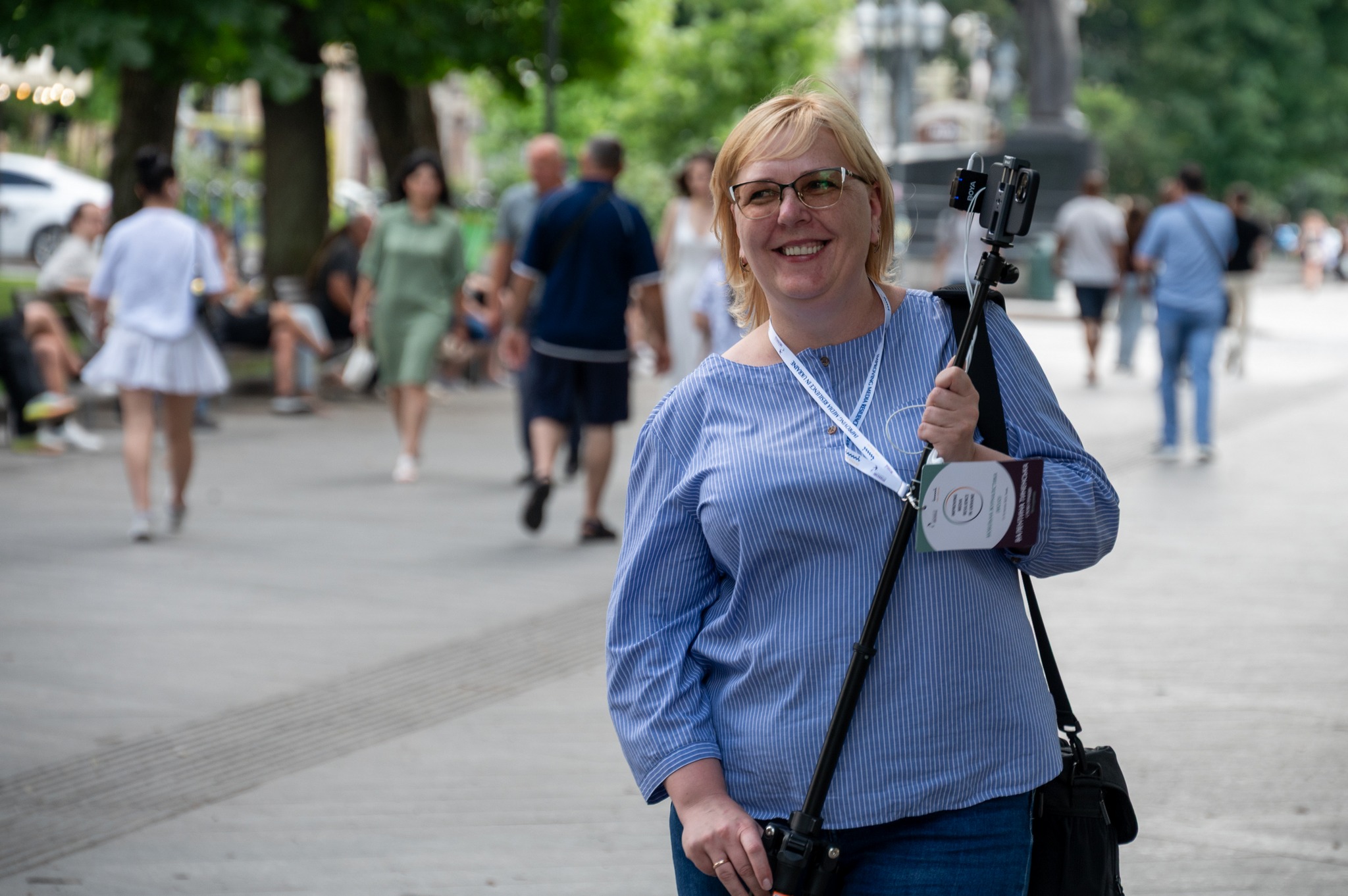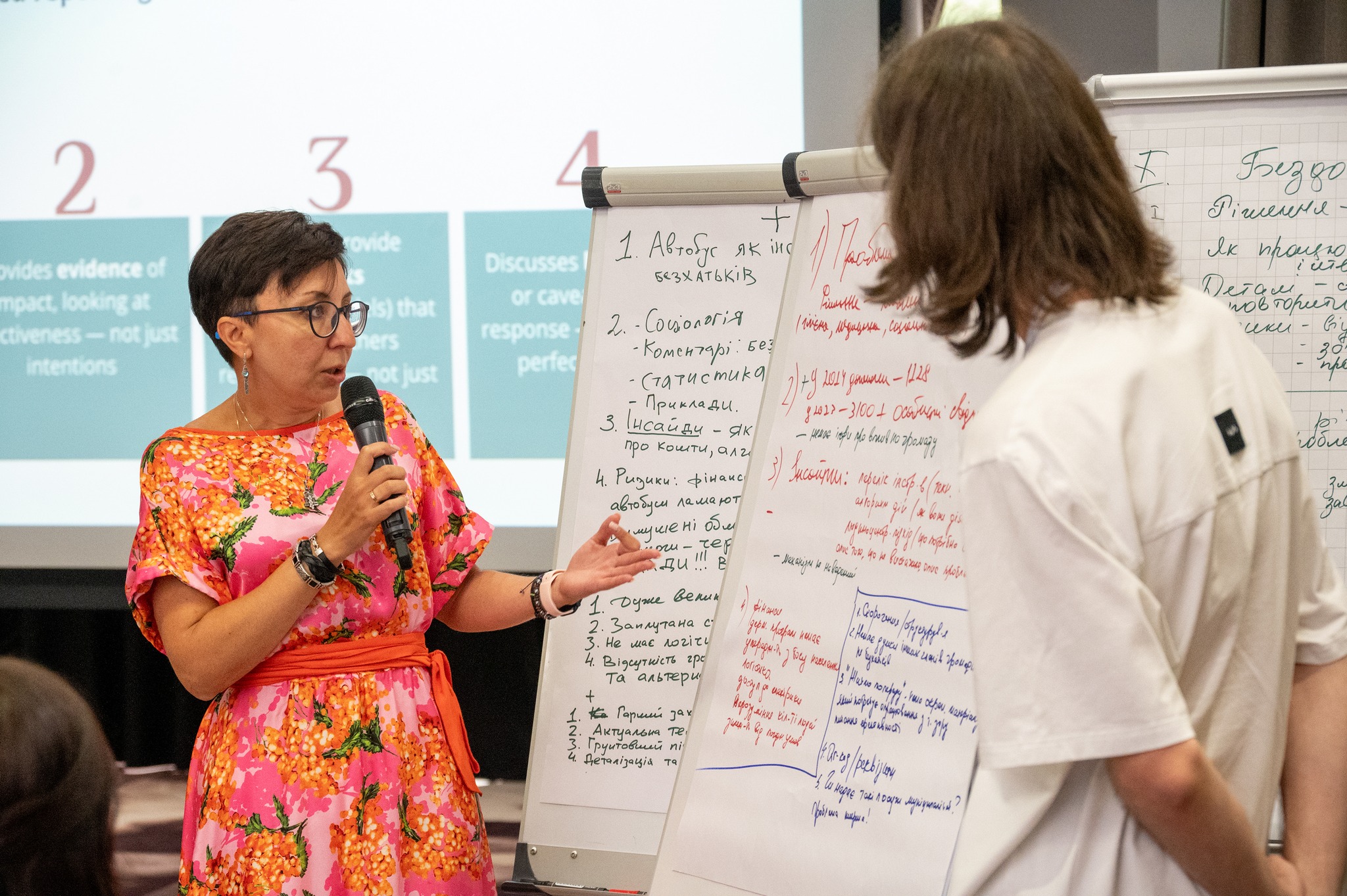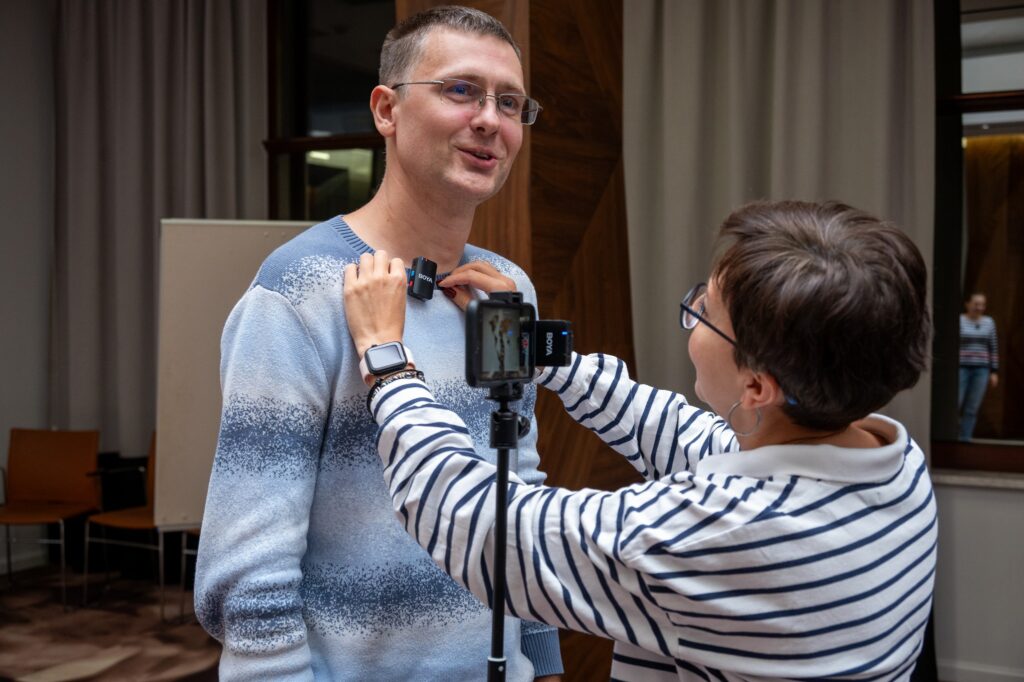
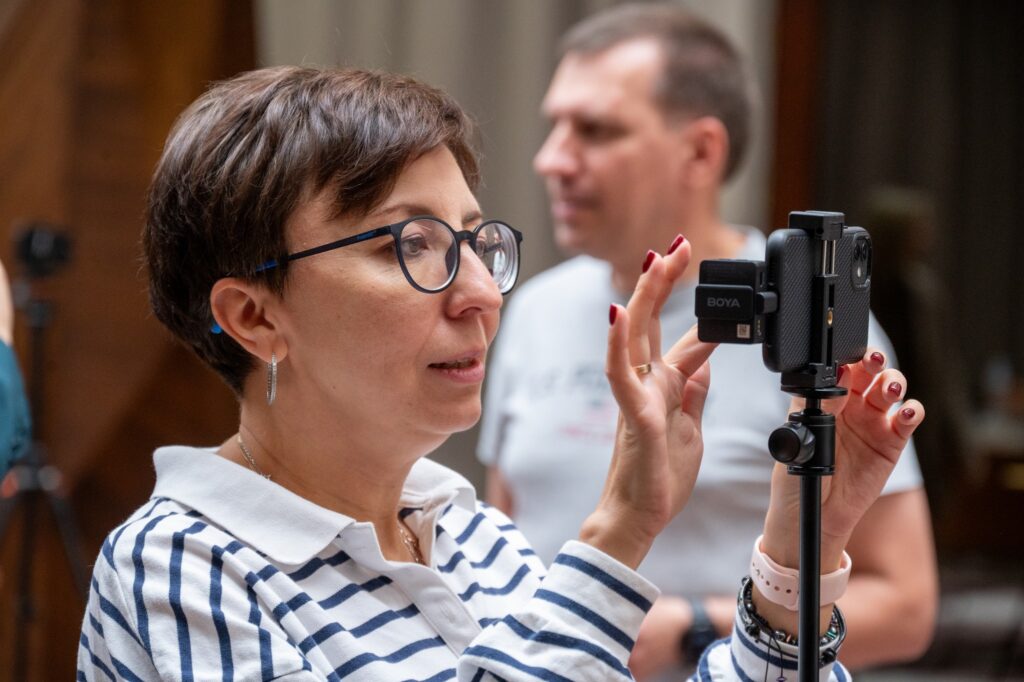
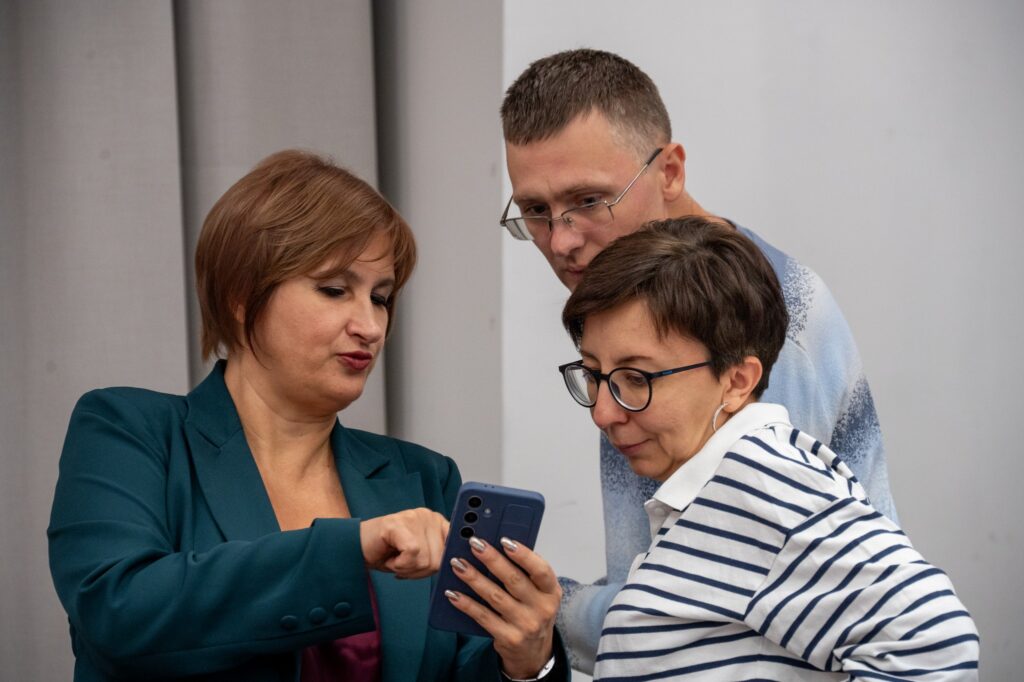
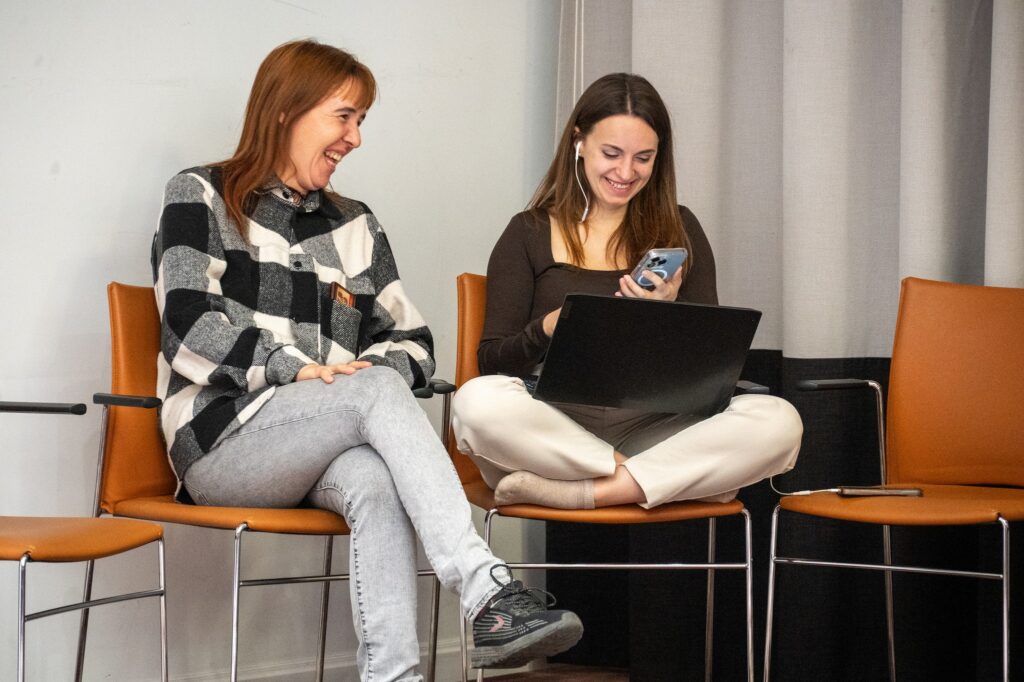
Three days with MOJO. Lviv has hosted the third production training for journalists who have already mastered mobile journalism, recognised its advantages, film videos daily, yet refuse to rest on their laurels. This multi-day laboratory was designed to refine their smartphone filming and editing expertise.
Journalists from various regions of Ukraine worked in pairs, as in previous sessions: each brought partial footage from their home city, with collaborative work continuing through filming in Lviv. This time, the emphasis was on sound: participants learnt to balance audio on smartphones and mastered useful new applications. Contemporary filming techniques were designed to add dynamism to stories, enhance panoramic shots, and professionalise stand-ups. Sessions covered the importance of proper lighting and filming whilst in motion. Moreover, working in pairs during editing allowed journalists to support one another and share experience and skills, participants said.
These days flew by in an instant for you, as they did for our team, didn’t they?
Yulia Savva, Gard.City: “Video journalism is tremendously convenient, brilliant and offers so many possibilities. I primarily worked with text before, but now we’re adding significantly more video content. Beyond YouTube, we have Instagram, Reels, we’ve even ventured onto TikTok. From each of the three training sessions, I take away some ‘wow-discovery’ for myself. For instance, how to create cutaways, balance sound. I use all of this in my daily work.”
Anastasia Kovalchuk, Visti Prydniprovya: “When I was travelling to the first MOJO training, I thought nothing would work out. After several laboratories, with all this wealth of knowledge, when you’re already using graphics, doing stand-ups, working with sound, you feel different. More confident. Because you possess the knowledge, understand approaches and techniques, know which ones to employ in particular situations. Thank you not only for the training but for the positivity. The opportunity to briefly forget about the mundane and become captivated by something new.”
Ksenia Minina, Zhovti Vody.City: “We evacuated from Volnovakha in 2022, left completely without equipment, and before attending the MOJO training sessions, we tried filming on our own. Without a camera operator. Out of habit, we bought a camera that could record video, simply because we’d had one before. And we received our first iPhone through this very project. Now we continue to thrive, perhaps precisely because we’re making videos – both advertising and content relevant to people. The community supports us.”
The training forms part of the Improving Media Resilience in Ukraine Project. Implemented by Fondation Hirondelle (Switzerland) and IRMI, Institute for Regional Media and Information (Ukraine). Funded by Swiss Solidarity.


